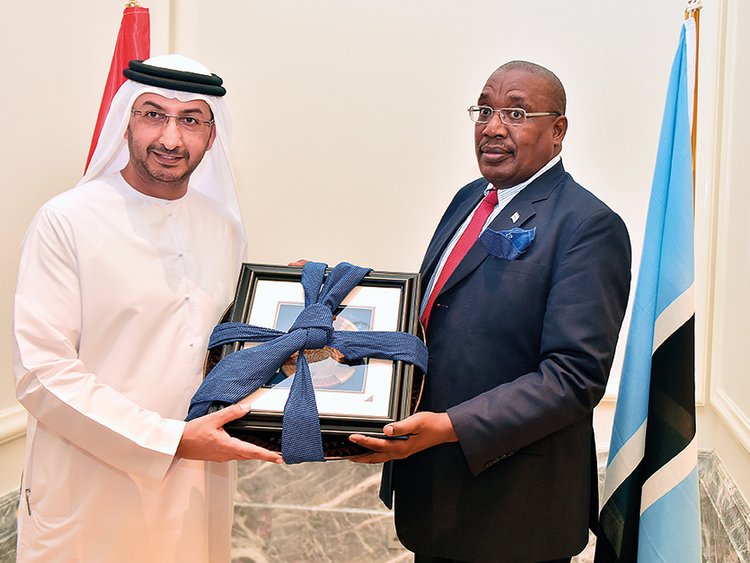Philda Nani Kereng, Botswana’s Minister for Environment, Natural Resource Conservation, and Tourism, has mentioned that she sees significant potential in the expansion of the bilateral trade ties between the two countries, Botswana and UAE, in the sectors of mining, tourism, agriculture, manufacturing, and ICT in the near future.
“So far, the UAE and Botswana share strong diplomatic and bilateral relations, therefore there is a huge potential to extend the scope of bilateral trade and partnerships in various sectors as both countries aim to capitalize on the existing relations,” she told Khaleej Times.
Botswana recently announced the ‘Botswana Tourism Month’ at its pavilion at Expo 2020 Dubai, which promises to highlight the Southern African country as a globally competitive force in tourism with a rich natural resource base and investment potential. Philda Nani Kereng said that the nation is known for its diamonds, copper, nickel, salt, soda ash, potash, coal, iron ore, silver, textiles, beef, maize, sorghum, and millet products.
The country also offers a diverse and unique tourism product. “With sustainable tourism at the heart of Botswana’s tourism sector, the country has developed exemplary policies with communities being able to play a significant role in the well-managed sector,” Kereng said. “While hit hard by the Covid-19 pandemic, Botswana’s travel industry shows a resilience that will help the country bounce back for the better.”
She noted that Botswana has also seen substantial growth in business and investment opportunities, due to its stable political environment, fast-growing developments, and welcoming people. Through Meetings, Incentives, Conferences, and Exhibitions (MICE) Tourism, the country optimized and varied its offerings bringing together people from different walks of life. The country’s commitment as a government is further amplified in the ‘National RESET’ agenda which in summary prioritizes saving Botswana’s population from Covid-19, aligning Botswana government machinery to the presidential agenda, digitization, value chain development, and a mindset change, the composite of which are ingredients towards building a robust and inclusive economy.
Kereng also highlighted the importance of Botswana’s travel and tourism sectors, noting that the country is a promising destination for both business and leisure, and which today boasts some of the world’s most pristine safari experiences, hotels, and entertainment facilities.
“Botswana is known for its exclusive experiences, dramatic wildlife encounters, picturesque landscapes, and off-grid vacations,” she said. “The country boasts two UNESCO World Heritage Sites – Tsodilo Hills with the rock art-filled spiritual sites, and the Okavango Delta which is the desert’s unexpected wetland wonder.”
Botswana is also known to host the world’s largest elephant population, which is a key attraction for many wildlife adventure tourists.
Thus, the main aim of the country’s tourism is to eliminate the negative externalities of the environment. Botswana has shown the readiness to host along with the travel industry in ensuring travel safety, creating information networks, and promoting their products and services internationally for the socio-economic development of the country.

